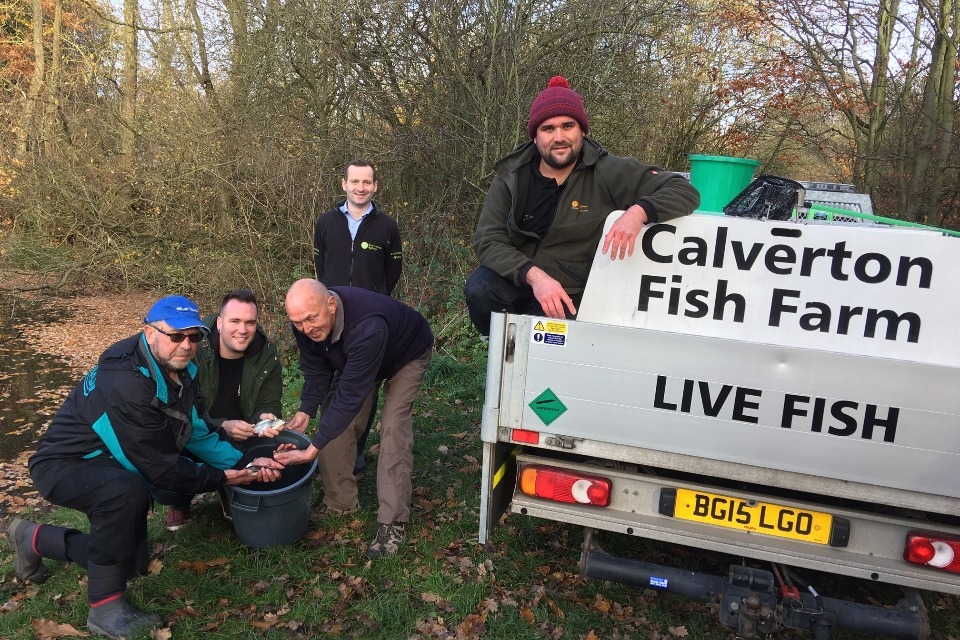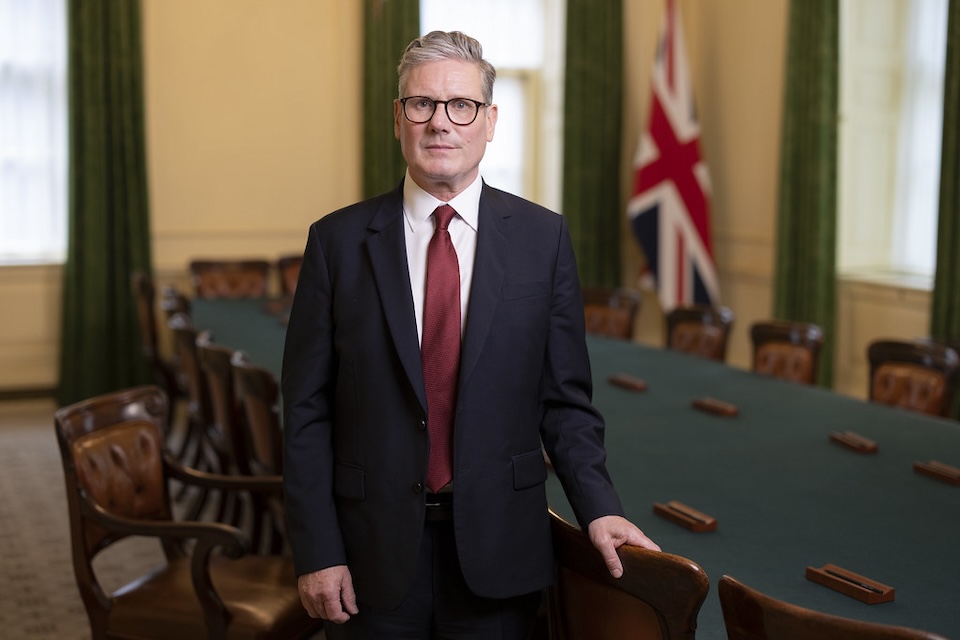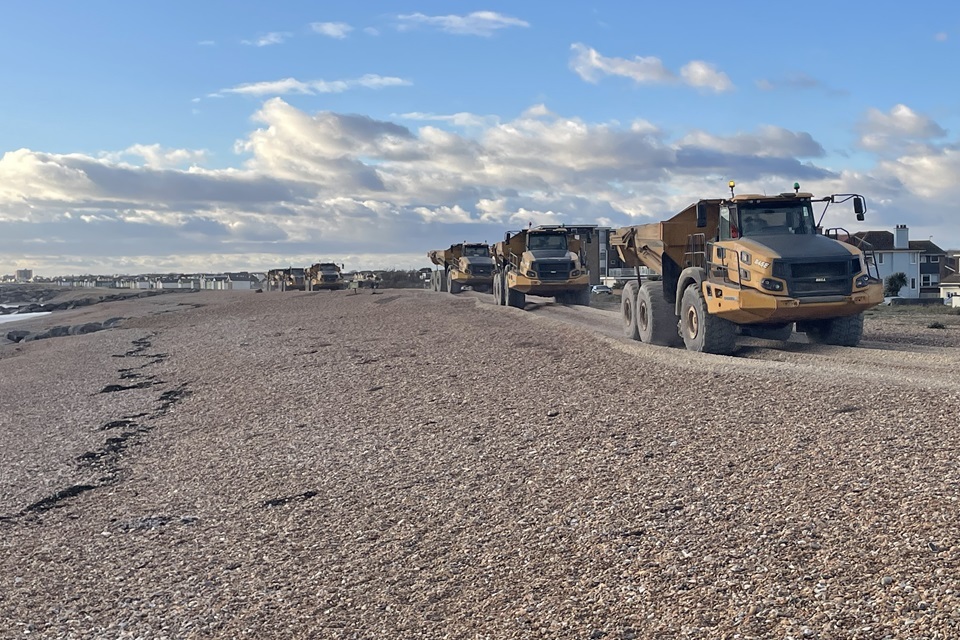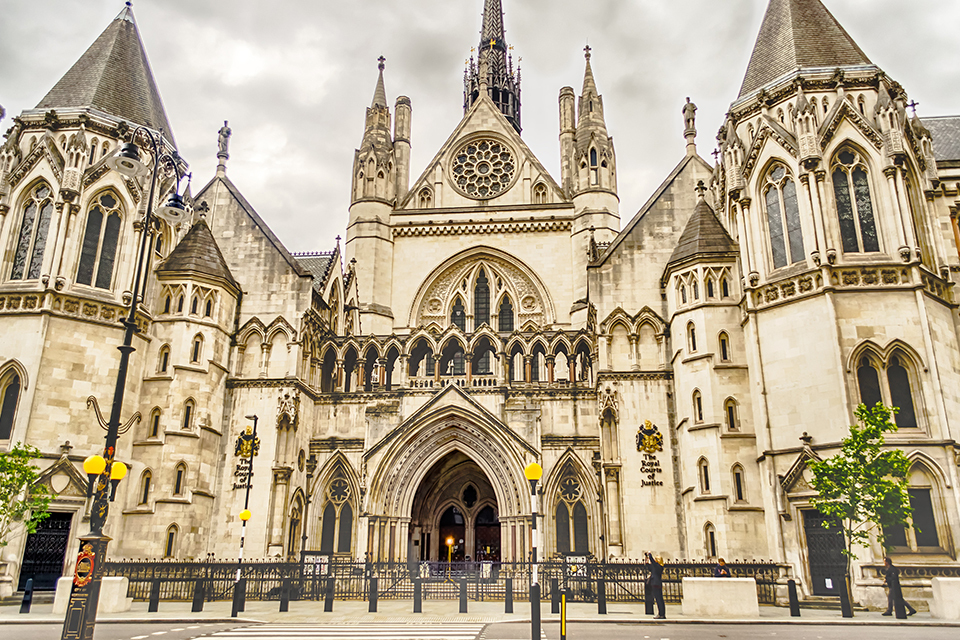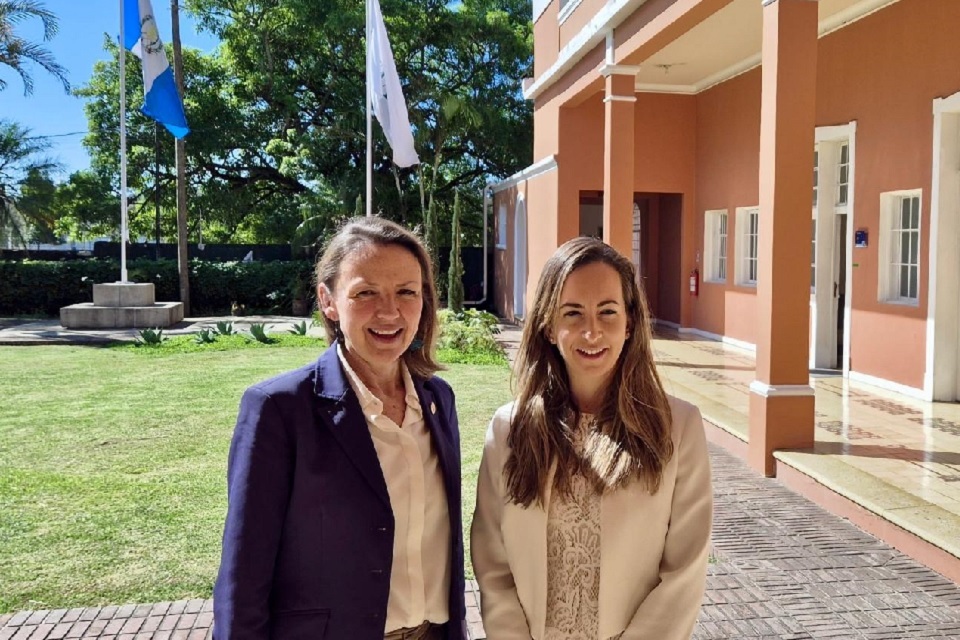- The National Coarse Fish Rearing Unit in Calverton, Nottinghamshire produced and stocked 510,488 fish in 2024 – an increase of 6.5% on the previous year
- Over half a million, high quality, fit for purpose fish were released into the wild throughout England
- The national fish farm is funded by income from rod licence fees
Every year, the National Coarse Fish Rearing Unit at Calverton in Nottinghamshire breeds coarse fish for release into rivers and still waters across England to help boost fish populations.
Netting the fish at Calverton fish farm
In 2024, the fish rearing unit produced and stocked 510,488 fish into waterways around the country – an increase of 6.5% on the previous year when 478,937 were bred and stocked.
In addition, just under 2 million advanced reared larvae were also stocked out into the wild.
Richard Pitman, Fish Farm Technical Specialist at the National Coarse Fish Rearing Unit said
The work of our national fish farm is funded by income from rod licence fees, so it’s great to see we are continuing to produce strong and healthy fish needed for restocking and recovery.
Occasionally a helping hand is needed to restore the natural balance following a pollution incident or decline, or to create new fisheries and opportunities for anglers. The annual national restocking programme is funded by income from rod licence sales and usually takes place in the winter.
We take great care in ensuring that every fish is fit for purpose when stocked out into the wild. During their 18 months+ at the farm, the fish are fed live natural food, they encounter a range of flora and fauna and are trained in flowing conditions while being grown in the earth ponds.
Winter is a good time to introduce the fish into rivers, as the water temperatures are low and this minimises any stress on the fish, giving them the best possible survival rates. It enables them to acclimatise to their new surroundings, ahead of their spawning season in the spring.
The spawning season was challenging in 2024 due to the increased rainfall and cool temperatures during the spring.
Richard explains
This made locating and obtaining sufficient broodstock at the optimum time difficult. These conditions also impacted the start of our second-year production cycle. With the storms and reduced temperatures experienced through April and into May, live food production and pond advancement was reduced causing a knock-on effect to the stocking programme.
Despite the challenging start in 2024, the team at Calverton showed their dedication and commitment throughout the growing season to produce an increase in fish production compared to last year. Their diligence has resulted in over half a million, high quality, fit for purpose fish, being released into the wild throughout England.
Fish also play a critical role in sustaining a river’s finely balanced eco-system, so the wider natural environment also gets a boost from restocking.
Further information
The National Coarse Fish Rearing Unit at Calverton remains the Environment Agency’s principal supply of coarse fish for restocking.
The breakdown of the fish produced and stocked in waterways across England in 2024 is as follows
Barbel = 136,150
Bream = 48,274
Chub = 54,830
Crucians = 25,915
Dace = 47,420
Grayling = 48,359
Roach = 86,190
Rudd = 23,300
Tench = 40,050
The breakdown of fish stocked in the Environment Agency areas is as follows
Anglian – 144,750
Midlands – 75,990
North East – 141,820
North West – 25,900
South East – 83,569
South West – 38,459
357,149 fish were introduced into rivers, and 153,339 were introduced into stillwaters.
Income from rod fishing licence sales is used to fund the Environment Agency’s work to protect and improve fish stocks and fisheries. This includes improving habitats for fish, reinvesting money back to facilities and clubs for anglers, tackling illegal fishing and working with partners to encourage more people to give fishing a go.
Any angler aged 13 or over, fishing on a river, canal or still water needs a licence to fish. A 1-day licence costs from just £7.10, and an annual licence costs from £35.80 (concessions available). Junior licences are free for 13 – 16-year-olds.
Licences are available from www.gov.uk/get-a-fishing-licence or by calling the Environment Agency on 0344 800 5386 between 8am and 6pm, Monday to Friday.

